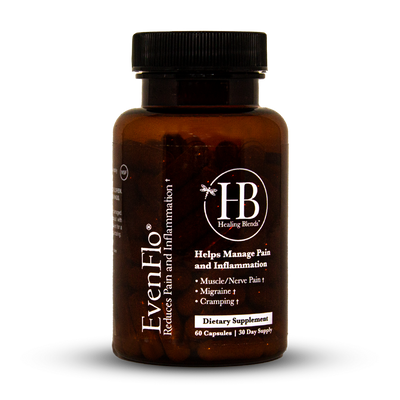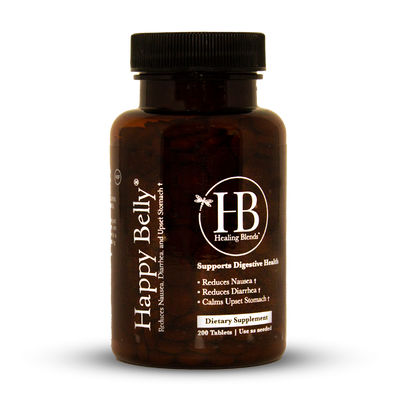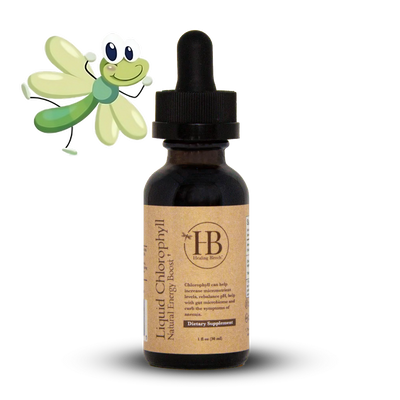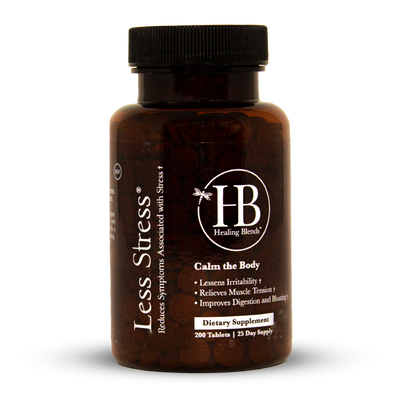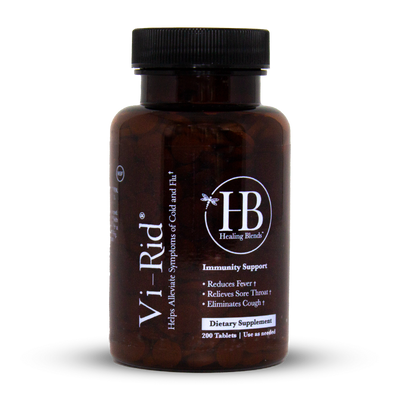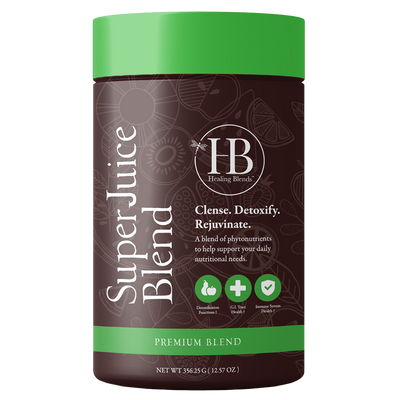Smash The Fear Of Aging With These Top 8 Gut-Nourishing Practices
Do you have a fear of getting old? If yes, don’t worry; 87% of Americans have the same fear, too. The reasons are a decline in physical ability, memory loss, developing chronic diseases, and running out of money.
Of the top 4 reasons, 3 have something to do with health. This tells us that people aren’t scared of growing older but of the health complications that come with it. And this is good news because if it’s health-related, we can always do something about it.
One thing that many people overlook is the gut’s connection to aging. Numerous studies have proven that a healthy gut contributes to managing and preventing age-related disorders.
Instead of fearing aging, why not follow these eight gut-nourishing practices we’ve compiled to help you build a healthier gut that can help you get through aging fearlessly?

Debunking the common aging misconceptions
While it’s true that aging is inevitable, it doesn’t have to be something you fear. Most fears come from a lack of knowledge. So below, we’ll dispel the common misconceptions about aging and state facts with hard proof of science.
Physical disorders happen to everyone
As we age, we increase our risk of developing disorders linked to physical decline. But this doesn’t mean it happens to everyone. Age-related physical disorders develop due to many factors, and age is just the cherry on top.
Take, for example, physical frailty and sarcopenia (PF&S). Physical frailty is when a person becomes weaker and less able to handle stress, while sarcopenia is the loss of muscle mass and strength. Both can lead to problems like disability, loss of independence, institutionalization, and death.
However, age is not the only determining factor for people to develop PF&S. Its development is influenced by a combination of factors, including anabolic resistance, chronic inflammation, oxidative stress, physical inactivity, poor nutrition, obesity, and gut microbiota.
Thus, your lifestyle choice, diet, stress management, and gut care significantly influence whether you have a high risk of developing physical disorders, not just your age.
Older people will experience dementia
Dementia is a condition where cognitive decline - the gradual decrease of a person’s cognitive ability, is severe enough to interfere with one’s daily life. The most common form of dementia is Alzheimer’s disease.
The belief that older will definitely experience dementia is not true. The cognitive decline comes normally with aging, such as:
- Slower processing speed: Processing information and reacting to new stimuli may take longer.
- Mild forgetfulness: Occasional forgetfulness of names, words, or where you put items is common.
- Difficulty with multitasking: Challenges in juggling multiple tasks simultaneously.
- Decreased attention span: Difficulty maintaining focus for extended periods.
- Reduced working memory: Slight difficulty holding and manipulating information in short-term memory.
- Language changes: Mild word-finding difficulties and occasional pauses in conversation.
However, when an individual experiences these changes, it doesn’t mean it will 100% lead to dementia. Most of these are subtle and do not affect everyday life. What’s more interesting is that there are ways to slow down and reverse cognitive decline.
Studies show that a gut-friendly lifestyle, such as following a high-fiber diet, being physically active, avoiding smoking and alcohol abuse, and maintaining a healthy weight, all contribute to reversing and slowing down cognitive decline.
Chronic diseases will get you one way or another
The common belief that as we age, we're bound to face chronic diseases oversimplifies the relationship between aging and health. While aging can increase the risk of chronic diseases, it doesn't mean that everyone will succumb to them.
Consider your gut microbiota. These gut inhabitants significantly impact our health, especially as we age. Research shows that maintaining a diverse gut bacteria can reduce the risk of chronic inflammation and related diseases, such as arthritis, cardiovascular disease, and type 2 diabetes, that tend to accompany aging.
Another primary aspect is the lifestyle choices we make. Not engaging in physical activity, excessive smoking and alcohol use, and obesity contribute to a higher risk of chronic diseases in older age.
So, while aging increases susceptibility to chronic diseases, it is not an inescapable fate. By understanding and nurturing the relationship between our gut microbiota, lifestyle choices, and aging, we can take proactive steps to minimize the risk of chronic diseases.

8 gut-nourishing practices to help you smash the fear of aging
The top 3 reasons why people fear aging have one thing in common. They can all be prevented and slowed down with the help of incorporating gut-nourishing practices in your life starting today! To help you get on track, here are ten practices you can start doing easily:
1. Follow a high-fiber diet
A diet rich in fiber is not only beneficial for digestive health but also plays a crucial role in supporting your gut microbiota.
Consuming high-fiber food, particularly those that promote the production of short-chain fatty acids (SCFAs), could be beneficial for gut health. SCFAs have been linked to gut microbiota modulation, reduced inflammation, and improved gut barrier function, which benefits cognitive function.
Examples of high-fiber food include:
- Whole Grains: Foods like oats, barley, quinoa, and brown rice are excellent sources of soluble fiber that can aid in SCFA production.
- Legumes: Beans, lentils, and chickpeas are rich in both soluble and insoluble fiber, offering a diverse range of nutrients for your gut bacteria to ferment.
- Fruits: Apples, pears, berries, and citrus fruits provide a combination of soluble and insoluble fiber, benefiting your gut microbiota.
- Vegetables: Broccoli, carrots, Brussels sprouts, and sweet potatoes are fiber-rich vegetables that support SCFA production.
2. Take probiotics
Probiotics are live beneficial bacteria that enhance gut balance and diversity. Research suggests that specific probiotic strains, especially those containing gut microbiota-derived metabolic enzymes, positively impact gut health and cognitive function.
Lactobacillus and Bifidobacterium strains are commonly studied and have been associated with gut health improvements. Some probiotic supplements include strains with metabolic enzymes, which help break down complex molecules and promote a healthier gut. An example is the Bifidobacterium longum subspecies infantis (B. infantis), which links to improved gut barrier function and reduced inflammation.
Incorporating probiotics into your diet can be effectively achieved through supplements, and many options are available in the market. We suggest selecting supplements that are formulated to support optimal gut health. A notable example is the ProTren Trenev Trio, which blends three key bacterial strains: Bifidobacterium bifidum, Lactobacillus acidophilus, and Lactobacillus bulgaricus. These strains have been recognized for their potential benefits in maintaining a healthy gut environment.
3. Physical exercise
Regular physical activity has been shown to be effective in preventing and managing cognitive impairment. Exercise has been shown to enhance gut microbiota diversity, which is crucial for overall health and can delay age-related cognitive decline.
When starting out, physical exercise does not have to be intense. Begin at a comfortable level and gradually increase your physical activity as your body adjusts. This way, you can be consistent and build a sustainable exercise habit that contributes to long-term health benefits.
4. Manage your stress
Chronic stress is a significant factor in the aging process, negatively impacting both gut health and cognitive function. Prolonged stress can lead to gut dysbiosis, an imbalance in the gut microbiota, which can exacerbate cognitive decline.
Techniques like mindfulness, meditation, and relaxation exercises are effective tools for managing stress, promoting a healthier gut-brain axis, and potentially slowing down the aging process.
These techniques make your body better at handling stress, lower inflammation, keep your thinking skills sharp, and ultimately keep your brain and gut in better shape as you get older.
5. Ensure you have adequate sleep
Quality sleep is essential for combating the effects of aging, particularly in cognitive health. When you sleep, your brain undergoes detoxification and memory consolidation processes, which are vital for maintaining cognitive functions as we age.
Lack of adequate sleep can lead to increased inflammation and gut microbiome disruption, exacerbating age-related cognitive decline. Ensuring sufficient and restful sleep is thus a key aspect of maintaining a healthy gut-brain axis, which is instrumental in preserving cognitive abilities and overall brain health in the later years of life.
6. Stop smoking and limit alcohol intake
Smoking and excessive alcohol consumption trigger chronic inflammation, increase oxidative stress, decrease nutrient absorption, and disrupt the gut microbiome. These habits harm overall health and accelerate aging.
Quitting smoking and limiting alcohol intake are essential steps in stopping these detrimental effects. When you quit smoking, you reduce inflammation, alleviate oxidative stress, and improve nutrient absorption in your gut. Your gut microbiome also gets a chance to recover, leading to a healthier digestive system.
Similarly, moderating alcohol intake allows your gut to maintain a better balance of beneficial bacteria, reducing the risk of gut dysbiosis. These positive changes contribute to better overall health, supporting your gut and cognitive function as you age.
7. Strive to maintain a healthy weight
Obesity is strongly connected to inflammation and gut dysbiosis, both of which can harm cognitive health and speed up the aging process. Maintaining a healthy weight reduces inflammation and ensures a balanced gut microbiome.
A healthy weight promotes the optimal operation of the gut-brain axis, a vital system for preserving cognitive functions and overall brain health. Doing so contributes to a more vibrant and active aging process, allowing you to age in a healthier and more fulfilling way.
8. Enroll in a gut reset program
Your gut is one-of-a-kind, and the optimal way to care for it is by enrolling in a gut reset program that recognizes the distinct microbiome in your gut.
A well-designed program contains a personalized plan designed to address your gut's unique requirements. This comprehensive plan encompasses crucial health aspects like lifestyle, environment, nutrition, and rest.
The good news is you don’t have to look further because we have this all-health-inclusive gut reset program in the bag.
Dr. Charlie Ware, our resident natural medicine physician, crafted a distinct process that identifies the microorganisms in the patient's gut through GI-MAP testing, analyzes those results, and creates a step-by-step wellness plan that caters specifically to your gut's needs.
With Dr. Ware’s program, you can be confident that you're giving your unique gut the specialized care it deserves for better overall health and aging.

Conclusion
In a society where the fear of aging is prevalent, it's important to recognize that growing old doesn't have to be synonymous with physical decline, memory loss, or chronic diseases. Instead, it can be an opportunity for a fulfilling and vibrant life.
Embracing gut-nourishing practices allows us to rewrite the narrative of aging. We can challenge misconceptions and empower ourselves with the knowledge that our lifestyle choices significantly impact how we age.
So, let's choose to smash the fear of aging. Contact Dr. Ware and enroll in the first step towards a healthier aging journey today!
References
https://www.ncbi.nlm.nih.gov/pmc/articles/PMC7019826/
https://www.ncbi.nlm.nih.gov/pmc/articles/PMC4906299/
https://www.who.int/news-room/fact-sheets/detail/dementia
https://www.ncbi.nlm.nih.gov/pmc/articles/PMC7302188/#s6title
https://www.ncbi.nlm.nih.gov/pmc/articles/PMC8444961/#agm212167-sec-0011title













